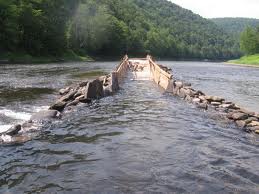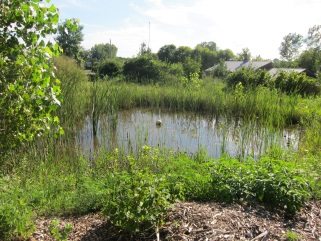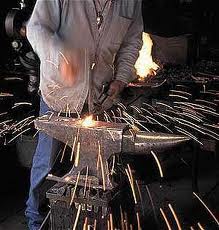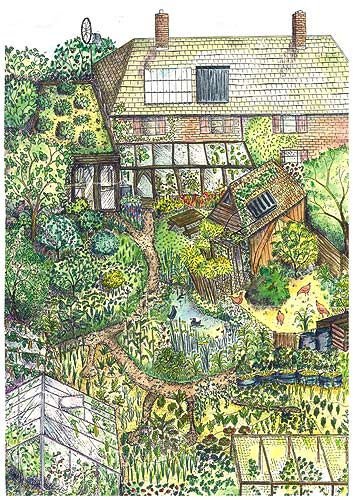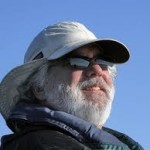 With Apologies to Jimmy Buffett (who is also looking at 70)
With Apologies to Jimmy Buffett (who is also looking at 70)
Mother, mother ocean, after all the years I’ve found My occupational hazard being my occupation’s just not around I feel like I’ve drowned, gonna head uptown
I was sitting with a valued friend the other night beside the pot belly stove in his boat building shop with a cup of tea at hand. We were talking, as usual, about life, choices made, roads not taken, and my reluctance to do what always makes me happiest – starting a new adventure. Faced with this vexing problem I talked it through with my friend. He is always honest, and gives his opinion with insight, compassion, and clarity. This decision is a tough one. I have lots of excuses not to embark on the next adventure, but the voyager in me is restless.
I don’t know what is preventing me from moving on –  commitments to my loving family (perceived and real), a job where I still feel useful, the gloomy winter weather, or the fact my mortality is creeping up on me, but I feel a bit like Ishmael in Moby Dick.
commitments to my loving family (perceived and real), a job where I still feel useful, the gloomy winter weather, or the fact my mortality is creeping up on me, but I feel a bit like Ishmael in Moby Dick.
Whenever I find myself growing grim about the mouth; whenever it is a damp, drizzly November in my soul; whenever I find myself involuntarily pausing before coffin warehouses, and bringing up the rear of every funeral I meet; and especially whenever my hypos get such an upper hand of me, that it requires a strong moral principle to prevent me from  deliberately stepping into the street, and methodically knocking people’s hats off–then, I account it high time to get to sea as soon as I can.
deliberately stepping into the street, and methodically knocking people’s hats off–then, I account it high time to get to sea as soon as I can.
My friend and his wife had recently, after talking about it for years, made the choice to move to coastal Maine from central New Jersey. When I asked why now? His answer was, “if not now, when?”
After more than 45 years at work as a planner, woodworker, homesteader, boat builder, sailing vessel captain, environmental advocate – all of it challenging, some of it difficult, and much of it out doors, my thoughts have turned to a more sedentary life with more time spent by the wood stove with a good book, or time in the wood shop, but despite the appeal of that choice, my mind churns out a hundred new ideas a day. I write about them now, but it is not as satisfying as using my artist’s skills, picking out one of many plans (damn the consequences), envisioning how it might look like when completed, figuring out what resources and people have to be in place to make it happen, and just doing it, in other words, if not now, when?
The following quote by Sterling Hayden has made me realize how complacent I have become. Although written about sailing I think it applies to any person’s life, no matter the path they choose:
“To be truly challenging, a voyage, like a life, must rest on a firm foundation of financial unrest. Otherwise, you are doomed to a routine traverse, the kind known to yachtsmen who play with their boats at sea… cruising, it is called. Voyaging belongs to seamen, and to the wanderers of the world who cannot, or will not, fit in. If you are contemplating a voyage and you have the means, abandon the venture until your fortunes change. Only then will you know what the sea is all about. I’ve always wanted to sail to the south seas, but I can’t afford it.” What these men can’t afford is not to go. They are enmeshed in the cancerous discipline of security. And in the worship of security we fling our lives beneath the wheels of routine – and before we know it our lives are gone. What does a man need – really need? A few pounds of food each day, heat and shelter, six feet to lie down in – and some form of working activity that will yield a sense of accomplishment. That’s all – in the material sense, and we know it. But we are brainwashed by our economic system until we end up in a tomb beneath a pyramid of time payments, mortgages, preposterous 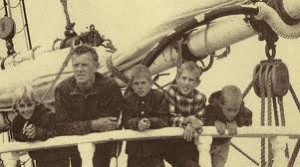 gadgetry, playthings that divert our attention for the sheer idiocy of the charade. The years thunder by, The dreams of youth grow dim where they lie caked in dust on the shelves of patience. Before we know it, the tomb is sealed. Where, then, lies the answer? In choice. Which shall it be: bankruptcy of purse or bankruptcy of life?” Sterling Hayden (Wanderer, 1973)
gadgetry, playthings that divert our attention for the sheer idiocy of the charade. The years thunder by, The dreams of youth grow dim where they lie caked in dust on the shelves of patience. Before we know it, the tomb is sealed. Where, then, lies the answer? In choice. Which shall it be: bankruptcy of purse or bankruptcy of life?” Sterling Hayden (Wanderer, 1973)
As quoted by Stuart Kiehl
I have been wondering what’s next because I would like to stretch myself and do something that calls for new perspectives. I have had varied careers, but I am thinking I should make one more significant change, to make a contribution that will take full engagement of heart and mind. I want to go voyaging not cruising.
My friend asked me a few months ago why I am so interested in food. I facetiously answered, “Because I like to eat.” But the real reason is obviously much more intertwined with the work in which I am engaged on climate change, “Peak Everything,” Permaculture, Transition, and social resiliency.
Food is at the heart of how we change the disastrous status quo. How and where food is grown and by whom, how it is distributed and transported, where the water and energy 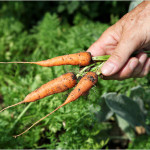 come from to grow it, and thousands of other components provide a focus for me.
come from to grow it, and thousands of other components provide a focus for me.
I have been spending my “free time” working on three interconnected ideas, Wellbeing Farm, CityFood, and The Vermont Sail Freight Project. Of these, Wellbeing Farm is the most comprehensive and encompasses several of the ideas that I have been thinking about for years..
The mission of Wellbeing Farm is to provide the means to survive the decades ahead as individuals, communities, and bioregions; to determine pragmatic implementable methods of transitioning away from the use of fossil fuels, and to do this as peacefully, equitably, and intelligently as possible. We will help to create ethical lifestyle changes, teach appropriate technologies that provide benefits rather than cause harm, foster self-reliance, and promote Slow technology through hands-on practice for students, professional practitioners from rural, suburban, and urban areas. We will do so by taking lessons from nature, through care and love of the environment, by developing the skills necessary in all areas of life, and by incorporating the values of care of the earth, care of people, ethical sharing of any surplus, and by teaching that actions have consequences, and that we have responsibilities for ourselves and others.
CityFood is a partnership in several senses. It is the idea of three colleagues, and it is about to establish another collaboration with Will Allen’s Growing Power to build a “training 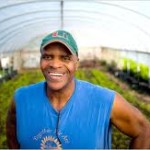 center” and urban farms in northern, NJ.
center” and urban farms in northern, NJ.
- CityFood™ is a “triple bottom line” vertically integrated sustainable green business consulting firm and incubator focused on developing urban agricultural facilities, fostering farm and urban relationships, and infrastructure and logistics for local food.
- CityFood™ identifies and rehabilitates industrial real estate, designs and develops aquaponics and hydroponics facilities that will provides living wage jobs.
- The organically grown vegetables and fish will be sold on site or through farmers markets and Community Supported Agriculture.
- CityFood will redevelop space for start-up and small local food processing, alternative energy demonstration projects for solar, wind and geothermal businesses while powering/heating/and lighting the facilities.
The Vermont Sail Freight Project (VSFP) is the furthest along of these ideas. Founded and implemented by Erik Andrus a farmer in Ferrisburgh, VT. VSFP is a slow tech approach to food, energy, and a resilient food system.
The Vermont Sail Freight Project originated out of our farm’s commitment to resilient food 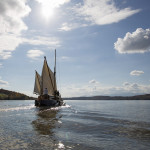 systems. Producing food sustainably is not enough. The other half is sustainable transport of goods to market and equitable exchange. A good portion of the damage conventional agriculture does to society and the environment is through our overblown, corporation-dominated distribution systems. The idea of a small, producer-owned craft sailing goods to market, perhaps even a distant market, is an alternative to this system, and one which has served our region well in the past.
systems. Producing food sustainably is not enough. The other half is sustainable transport of goods to market and equitable exchange. A good portion of the damage conventional agriculture does to society and the environment is through our overblown, corporation-dominated distribution systems. The idea of a small, producer-owned craft sailing goods to market, perhaps even a distant market, is an alternative to this system, and one which has served our region well in the past.
The VSFP appeals to my head and heart. I have thrown what little influence and connections I have behind Erik’s project after learning about it through Jan Lundberg’s Sail Tranport Network while I was working on my own idea for transporting farm goods by sail called HARVEST.
Two of these projects would be full time and may require a move. All of them would necessitate a huge amount of time, a significant reduction in income, and disruption of my routine – sounds like I should be heeding Sterling’s advice “To be truly challenging, a voyage, like a life, must rest on a firm foundation of financial unrest. Otherwise, you are doomed to a routine traverse.”
My friend also pointed out that I am now officially an “elder.” The term brings to mind a traditional society where age equals knowledge and respect, and where younger members of a community would seek out the elders for advice. I began to wonder what being an elder means in our society where age is often equated with a burden on the state, ill health, poverty, and loss of respect.
One elder skill I possess is that I actually remember the “60’s and 70’s” when many of us were involved in anti-war conscientious objection, racial integration, back to the land, growing and preserving home grown fruit and vegetables, making clothing, brewing beer and wine, setting up housing communities and cooperatives. This all got derailed by the 1980’s oil glut and Reganomics , with its promised shiny future powered by endless resources. If there is one thing I could pass onto younger members of the community, it should be: “don’t ever let this happen again.”
So, I find myself wanting to teach, to start to pass on a lifetime of experiences, but not in a sterile classroom of some university, or seminars at conferences. I want to engage young people (and those not so young) who are looking for something meaningful and unique – for those who really want to change our world by preserving the skills of the past to serve the future.
I could continue to write about my ideas or I can get out in the world, teach by example,  and take one more crack at it. I will probably not live to see the final implementation of any of these projects, and I am OK with that.
and take one more crack at it. I will probably not live to see the final implementation of any of these projects, and I am OK with that.

